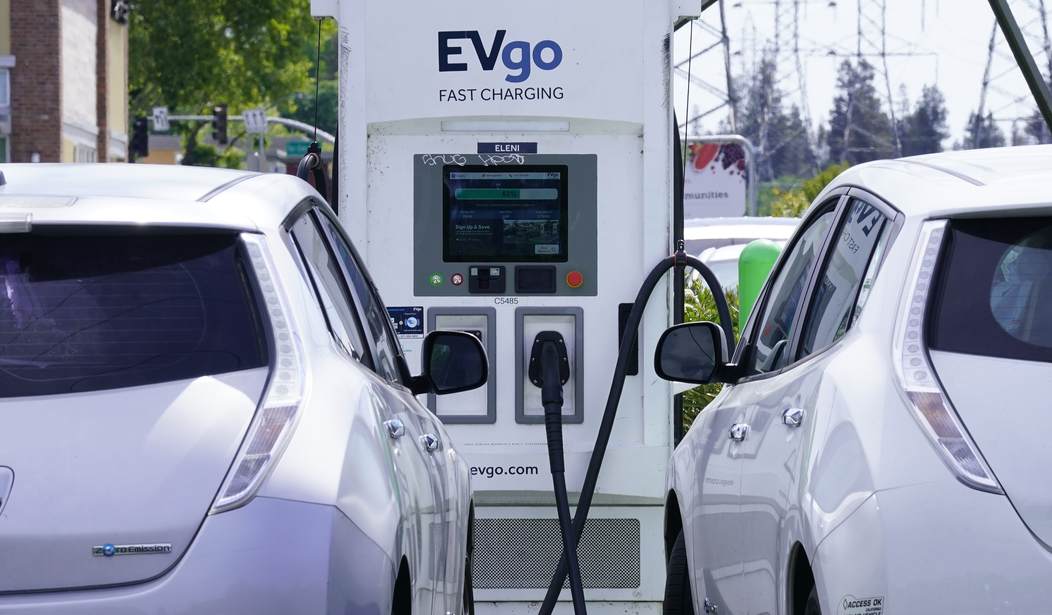Shortly after taking office, Joe Biden set a goal of half the new cars sold in America by 2030 to be zero-emission vehicles. But in order to achieve that goal, Biden is going to have to drastically increase electric vehicle production. The problem with that is that most of the critical components for electric vehicles are either manufactured in China or made of materials only available in China.
That’s a problem because new rules created after the passage of the Inflation Reduction Act (sic) “consumers will only be able to receive tax credits for EVs that are manufactured with a certain amount of critical minerals and components from the U.S. or nations the U.S. is in a free trade agreement with,” reports Fox News.
At the same time that the EV subsidies are being reduced, the EPA is going to create new emission standards that will make gas-powered cars even more expensive.
“NHTSA’s new fuel economy standards will only add to the cost of new cars, depriving people of safe, affordable vehicles, at a time when they are already struggling,” said Rep. Cathy McMorris Rodgers (R-Wash.), the current chair of the Energy and Commerce Committee.
“It also enforces burdensome penalties on manufacturers—who are finding it difficult to keep up with high demand and inventory shortages as it is—which will only increase prices further as these ’penalties’ are passed along to the consumers.”
Despite the drive by the Biden administration to sell EVs, only about 7% of new cars sold in America last year were electric.
Despite the massive push from Biden and Democratic-led states for Americans to more quickly adopt EVs, traditional gas-powered cars represented 93% of all new car sales in 2022, according to a recent report from the Alliance for Automotive Innovation. And EVs remain far more expensive and less efficient than alternatives.
Overall, the average cost of an EV was $64,338 while the average cost of a compact gas-powered car was $26,101 as of last year, according to Kelley Blue Book. In addition, the Department of Energy reported that the average range of model year 2021 gasoline vehicles was 403 miles compared to the median 234-mile range of model year 2021 EVs.
Many greens wanted Biden to emulate California and their catastrophic rules that would eliminate new gas-powered vehicles by 2035.
California Air Resources Board Executive Officer Steven Cliff told Reuters in December the federal government should “look at stringency that’s equivalent to our rules … We’re 68% zero emissions in 2030 so modeling that and looking at that as an option for 2030 is absolutely critical.”
The Alliance for Automotive Innovation, a trade group representing nearly all automakers including Ford Motor (F.N), Volkswagen (VOWG_p.DE) and Toyota Motor (7203.T), said Thursday the industry backs the shift to EVs. “The question isn’t whether it can be done, it’s how fast can it be done.”
No. The question is how fast can automakers improve the technology and performance of electric cars to allow them to compete on an even playing field — including price — with gasoline-powered cars. That’s not possible now, nor is there any chance it will be possible in ten years.
The real goal of the administration is to make gas-powered cars as expensive as EVs because the subsidies — about $40,000 for some vehicles — aren’t really helping sales that much. The only things that will really improve sales are the same things that sell gas-powered cars — quality and performance.
And EVs are a long way from winning that competition.










Join the conversation as a VIP Member